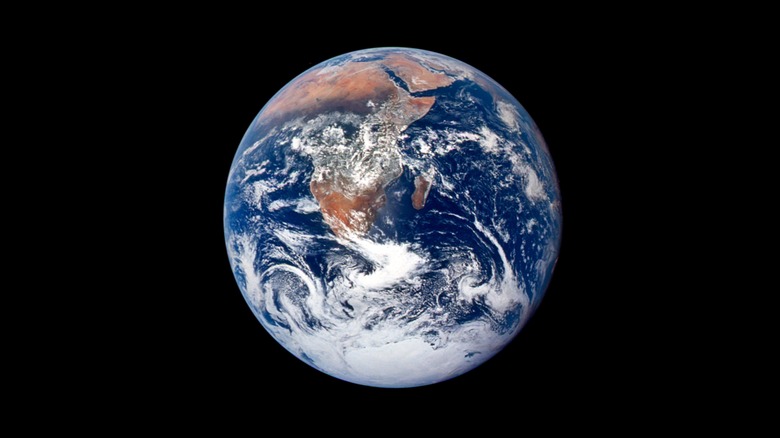Why A Shorter Day Could Have Disastrous Consequences For Technology
Earth has recorded its shortest day ever, and according to the experts over at Meta née Facebook, it could spell disaster for the modern-day IT infrastructure. Remember the Year 2000 Problem aka the Year 2000 Bug aka the Millenium Bug that was supposed to spell global electronic doom at the onset of the new century? Well, Earth's record short days could lead to something called a negative leap second, and it sure looks like a proposal that might lead to wide-scale shutdowns — or so says Meta.
According to TimeAndDate, Earth set a new record on June 29 by completing a full rotation on its axis 1.59 milliseconds earlier than the usual window of 86,400 seconds (or exact 24 hours). On July 26, it again edged close to a record with a negative 1.50-millisecond difference in its rotation period. To put it simply: the days are getting shorter. This pattern lasted throughout 2021, while in 2020, our planet recorded 28 of the shortest days ever recorded since the atomic clock system was adopted for taking measurements over five decades ago.
Not all changes need correcting, but if the numbers are large enough, scientists slip in an extra leap second at the end of June or December to delay the UTC second so that the Earth can catch up with the measurements taken by atomic clocks in labs across the globe. This has happened over 20 times since 1972, but things have changed since, especially the code-driven global IT systems.
Why is Meta panicked?
Meta is officially campaigning any future bid at inserting another leap second, hoping for the adoption of a new time-keeping system. While leap seconds have only been added in the past, subtracting a second from the time-keeping cycle will "have a devastating effect on the software relying on timers or schedulers" with a missing time stamp. The explainer has a ton of technical details, but the risks are real and there's already some precedent for such a system crash. For example in 2017, Cloudflare servers experienced an outage on new year's eve when the system panicked after encountering a negative value.
Earth's speed increase and the shortening of days could be triggered by anything from climate change to tidal movements. Even the Moon's gravitational pull could be a contributor to the change. According to research published in Nature, the 2004 Indian Ocean earthquake and the subsequent tsunami sped up the Earth's rotation. It mentioned that the change in Earth's rotational behavior was triggered due to a "shift off mass towards the planet's center."
One possible explanation for the latest turn of events is the Chandler Wobble. Discovered by American astronomer Seth Carlo Chandler using a device that he invented called almucantar, the Chandler Wobble refers to the movement of Earth's pole by 0.7 arcseconds over a span of roughly 14 months. Scientists believe that it is caused by changes in pressure, temperature, and salinity at the bottom of oceans.

